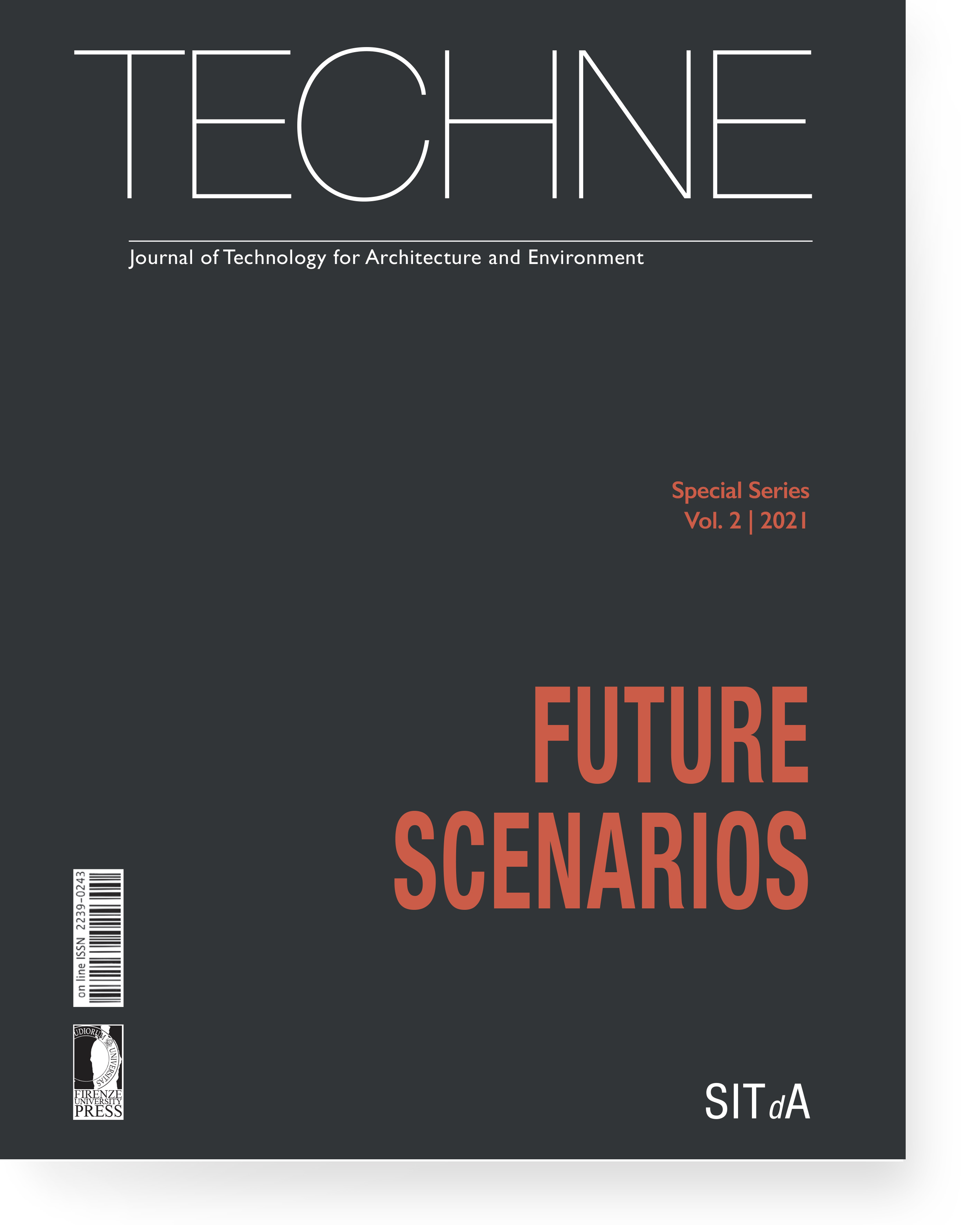Published 2021-03-22
Keywords
- City sensing,
- Datafication,
- Big Data analytics,
- Computational urban planning,
- Adaptive and inclusive urban planning
How to Cite
Abstract
Future scenarios foresee a city as a fragmented and uneven system in relation to rapidly evolving environmental, economic and social phenomena. The traditional urban planning tools, based on a theoretical-predictive approach, adapt poorly. We need to rethink how to govern the transformations of a city, which can be described by models of urban metabolism. City Sensing has changed the way a city is explored and used. With the transition from digitisation to datafication, through a computational approach, one can process georeferenced datasets within algorithms in order to achieve a higher quality of the project. This process exploits data provided by public administrations, companies and citizens taking part in inclusive and adaptive urban planning.







